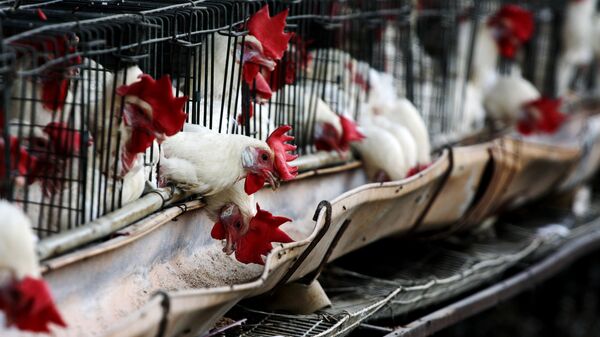“By doing surveys in various states in this multi-billion, 40-billion-dollar, very profitable industry workers are being treated egregiously. It is so bad that they can’t even get permission to go to the bathroom. I have talked with the workers again and again who say that if they request to go to the bathroom they are denied. They see other people urinate on themselves and in some cases they are forced to wear adult diapers. We are talking about the fresh food industry.”
Sinclair said that this is the industry that processes the fresh food which hundreds of millions of Americans consume on a weekly bases.
He further said, “The increase in demand for chicken, especially processed chicken, is rising and the need for labor is increasing. Denying bathroom breaks is just a tip of the iceberg.” The intensity of the job, as it includes about two chicken carcasses flying by the worker per second, makes the job extremely difficult.
“I spoke with a woman who requested to go to the bathroom, she was denied. After 45 minutes when they still didn’t let her go, she went anyway. When she got out there was a supervisor and another big guy who took her into a private interrogation room and harassed her for a period of time and then told her that she can only go to the bathroom two more times for the rest of the week.”
He further spoke about how these workers are being taken advantage of due to their precarious economic situation.
Some of them are in a dire situation because there aren’t any other jobs available for them and they have to send money back home. They also don’t know the laws and some of them don’t even speak the language.
The paper itself is based on scores of interviews with poultry workers across the US. For instance, in Alabama, nearly four in five interviewees said they were not allowed to use the bathroom to keep up with the production line speed.
Moreover, a recent survey of employees in Minnesota found that 86 percent of them get only two bathroom breaks a week. Meanwhile, the industry has responded with both concern and denial.
The National Chicken Council and the US Poultry & Egg Association said in a joint statement that they are troubled by these claims.



